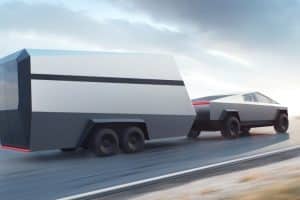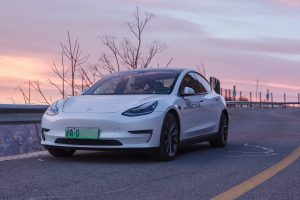George Hotz, the 32-year-old CEO of Comma AI who made a name for himself as the hacker “geohot” when he was just a teenager, announced that he is stepping away from his company on his GitHub page. According to Hotz, he no longer feels “capable” to continue leading the driver-assist technology company he created seven years ago.
Hotz has had a long history in the tech industry despite his young age. He gained notoriety in hacker communities at the age of 17 after becoming the first person to carrier unlock the iPhone. He also bumped heads with Sony a few years later for hacking the PlayStation 3.
Hotz also got into a disagreement with Elon Musk in 2015 after Musk allegedly wanted to hire him because he thought he could improve Tesla’s Autopilot software. Hotz later founded Comma AI, which focused itself on driver-assist technologies. In true hacker fashion, Hotz’s autonomous driving code, “openpilot,” was posted online for free.
According to a recent blog post, however, Hotz noted that running a company that was short on revenue and constantly needing to raise cash was starting to wear thin. “It’s well within comma’s reach to become a 100M+ revenue consumer electronics company (without raising again!), but I don’t think I’m capable of running a company like that,” Hotz wrote.
“It’s no longer about all-nighters, powering through with brute force, sparring with elegance, winning and losing, all within grasp yet all not… I’m probably delusional but you wouldn’t start a company otherwise, right?
“It’s no longer a race car. It’s a boat. And steering a boat requires too much damn planning and patience. This is my favorite Rick and Morty clip. If comma succeeds, it really never was me. It’s the people there who can drive boats. As I am with the world, I am a cheerleader and court jester,” Hotz noted.
Hotz did note that he is not just taking some time away from Comma AI. He is also considering another company called the Tiny Corporation, though it is mostly a hobby. He also noted that his challenges today are not technological in nature, but more psychosocial.
“Today’s struggle isn’t a technological one, it’s psychosocial. The technology of sovereignty is only part of the battle, particularly if that technology is further down the tech tree than non invasive wireheading. There are days I feel like I’m the chosen one, days I feel like I’m not, and other days I feel it’s crazy to even believe in the chosen one. I’m trying to craft a journey to find out which is true, I should put it to the test before I’m too old,” Hotz wrote.





